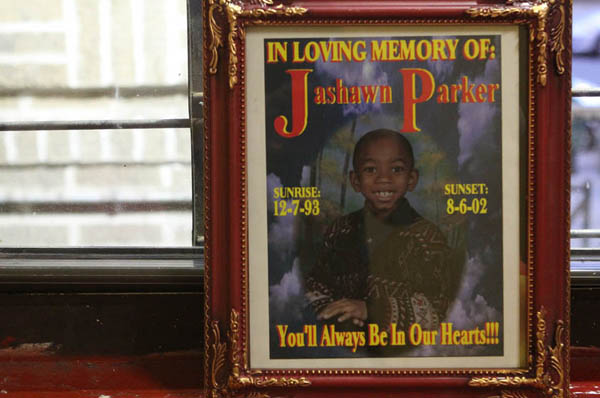Share This Article
The legislation dates back to a 2002 tragedy when 8-year-old Jashawn Parker died in a fire in a residential Bronx building, where the landlord had failed to address almost 400 housing code violations for nearly two years.

Jacqueline Vergara
The legislation dates back to a 2002, when 8-year-old Jashawn Parker died in a fire in a violation-riddled Bronx building.A new state law goes into effect next month which establishes a 60-day deadline for property owners to expedite repairs on housing code violations, and restricts landlords’ requests for time extensions to complete those court-ordered repairs.
The bill, A2625/S3320, was signed into law last week and allows a court to set a 60-day limit for property owners to mitigate violations, and prohibits them from asking to renegotiate that deadline more than once. If the 60-day deadline is not met, and the property owner does not meet the court’s “good cause” threshold—meaning the landlord hasn’t shown sufficient progress that would grant them a time extension—then the judge moves towards 7A proceedings, in which the court appoints an administrator to maintain a building in place of the landlord when dangerous or inhabitable housing conditions exist for at least five days.
State Senator Robert Jackson and Assemblymember Jeffrey Dinowitz, the bills’ sponsors, say impetus for the legislation dates back to a 2002 tragedy when 8-year-old Jashawn Parker died in a fire in a residential Bronx building. The blaze was caused by the landlord’s negligence to address almost 400 housing code violations which included leaks and electrical problems, according to both lawmakers.
In 2012, City Limits published a five-part investigative series on Jashawn’s death and on the landlord of his building at 3569 DeKalb Ave., where tenants had sought a 7A administratorship for nearly two years but were only granted one after the fatal fire took place.
“[The bill] is in sharp contrast to what the law has been all these years, which essentially was open-ended, which meant there were no limits for a landlord to make necessary and possibly life-saving repairs,” said Dinowitz during the press announcement about the new law.
“It streamlines the process toward administratorship,” said Chris Nickell, deputy chief of staff for Jackson.
Dinowitz first introduced a version of the bill in 2002. In the years since, it has passed the State Assembly sixteen times, but never the State Senate until this year with the aid of Sen. Jackson and a more progressive legislature, the assemblyman said.
The bill specifically amends Section 777.A of the real property actions and proceedings law, which currently gives housing court judges the discretion to set a deadline for landlords to correct violations, and also allows property owners to request more time. Property owners took advantage of the loophole to avoid addressing serious housing code violations for months or years in some cases, Dinowitz and Jackson said.
“Although the 7A law as written says a judge may strip a landlord of control of their building if they have allowed conditions dangerous to the life, health, and safety of tenants to exist for five days, in reality the court procedures and trials involved with a 7A proceeding drag that process out over months,” Greg Baltz, a staff attorney with the advocacy group TakeRoot Justice, said in a statement.
“Even after a landlord has failed to use those months to make repairs, the 7A law gave them second, third, and fourth bites at the apple before a judge would appoint an independent administrator to do the job the landlord wouldn’t.”
The new law will take effect on Dec. 11, 2020.
